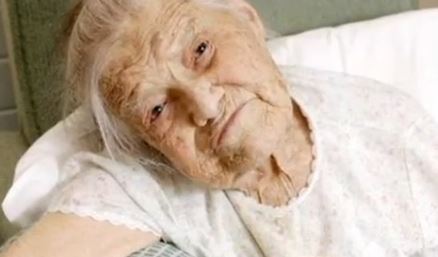A woman once described in British headlines as the “world’s oldest virgin” explained her lifelong celibacy in plain terms more than a decade before her death, saying she had “never been interested in sex,” believed it seemed “a lot of hassle,” and had been “too busy doing other things.” The woman, Clara Meadmore, was born in Glasgow in 1903, spent periods of her life in Britain and New Zealand, worked as a secretary and housekeeper, and died in 2011 aged 108 after spending her final years in a nursing home in Cornwall. Her remarks about why she had never had sex were recorded publicly as she marked her 105th birthday in October 2008 and were repeated again when she turned 107, forming the basis of a story that continues to circulate on social media whenever users revisit unusual accounts of longevity and personal choice.
Meadmore’s account, given in interviews and quoted by major news agencies at the time, was consistent and unembellished. “People have asked me whether I am homosexual and the answer is no. I have just never been interested in sex,” she said, adding in the same conversation that she imagined there was “a lot of hassle involved” and that she had “always been busy doing other things.” The comments came at a small celebration at Perran Bay nursing home, where she received a birthday card from Queen Elizabeth II and told reporters she attributed her long life to regular walking, a modest glass of wine and abstaining from sex. Those lines, factual and unvarnished, have supplied the enduring explanation for a personal decision that made her an outlier even among centenarians whose lifestyles often draw public curiosity.
What is verifiable about Meadmore’s life is relatively straightforward. Born on 11 October 1903, she spent her adult years working and never married. She told reporters she had suitors and received proposals but decided early not to wed, a choice rooted in the social context of the 1920s and 1930s when, as she framed it, sex was typically confined to marriage and she had no interest in that path. She lived independently in Cornwall until entering residential care at 104 and died in 2011; accounts published at the time of her milestone birthdays and in later summaries broadly agree on those essentials while emphasising her calm insistence that celibacy was neither a sacrifice nor a crusade, simply a settled preference.
The language she used—“never been interested,” “a lot of hassle,” “too busy”—appeared to be chosen to discourage sensationalism and to separate curiosity about her choice from speculation about her identity. Asked directly whether her celibacy stemmed from sexual orientation, she said it did not, and she rejected any suggestion that she nursed regrets about foregoing sex or marriage. The framing aligned with the practical tone of her other birthday remarks, which stressed routine over doctrine: long walks, a little wine, and a lifetime of work. For readers encountering her story years later, those comments continue to function as both explanation and boundary—enough to answer the question, not an invitation to turn her life into a symbol beyond her words.
